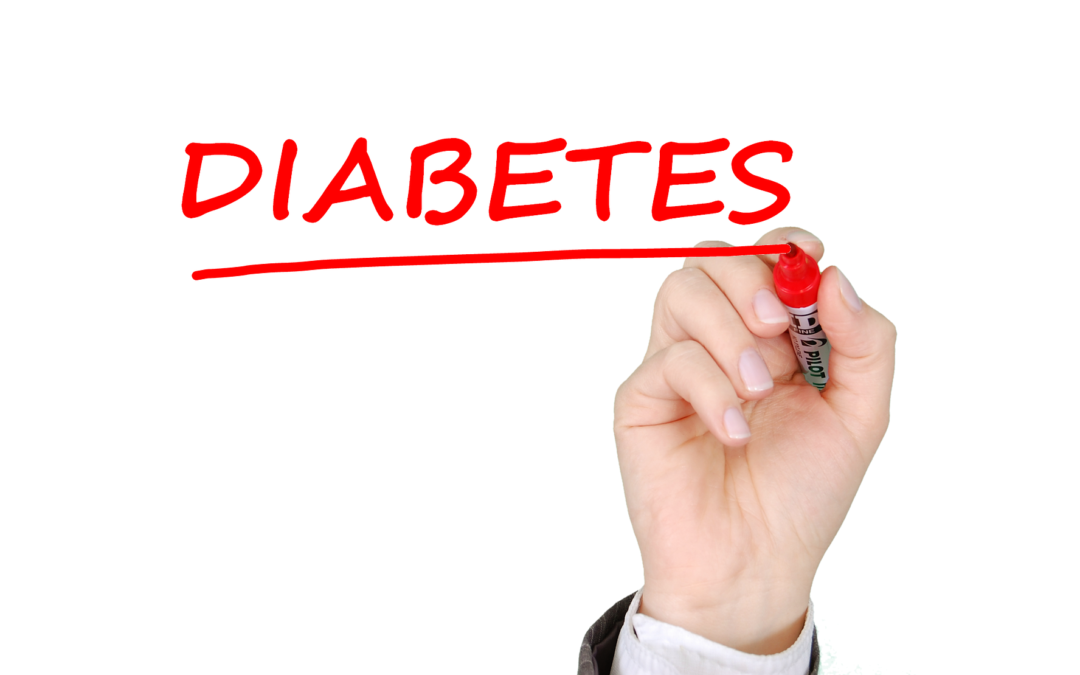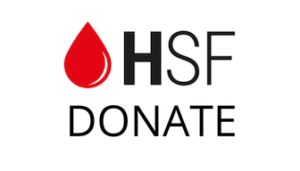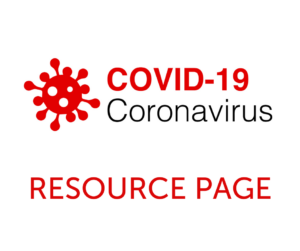“The low blood sugar of today is the diabetes of tomorrow.” -Dr. Seale Harris
It is rare that I have a conversation about hypoglycemia that the subject of diabetes doesn’t come up. The thousands of letters and e-mails I’ve received over the past 38 plus years confirm that this is a major concern. One such email message gives you an indication of what I mean. “Darren,” a full-time college student at Tulane University in New Orleans writes, “I feel like I’m going to die from this thing that grossly interferes with my life…I want to know everything…I don’t understand much. Should I just eat everything when I have an attack? Tell me what to eat when I’m freaking…I also want to know how this affects my metabolism? How does it differ from diabetes? Is it the predecessor? What are the long-term effects? Can this kill me? Because sometimes I want to die or just be able to stick insulin needle in my arm and feel better. Perhaps it is because I am uneducated on the issues, but it seems to me that diabetics have it easier. They can just “get a fix” so to speak. I don’t really like needles but I could get used to them if it would make me feel better, feel normal.”
Another e-mail arrived shortly after the one from Darren.” “I was just diagnosed with hypoglycemia. Can you explain in plain language that I can understand how hypoglycemia is prediabetic? Please tell me this isn’t true and if so how could I become diabetic?”
It was difficult to respond to these two emails. What do you say to someone who sounds so desperate and helpless? Is information enough? In both these cases however, information is the ONLY answer. When fear and panic set in because of the unknown, every physical symptom becomes magnified. If only they read Lick The Sugar Habit by Dr. Nancy Appleton, Sugar Shock by Connie Bennett, Hypoglycemia: The Other Sugar Disease by Anita Flegg, or Hypoglycemia for Dummies by Cheryl Chow and Dr. James Chow. Each of these books would have answered all the above questions!
It saddens me that this information isn’t readily available through the medical community. Maybe it is because hypoglycemia and diabetes are often separated as health conditions—one is accepted while one is virtually ignored. Hypoglycemia is often only spoken of in the context of insulin and blood sugar level management for people with diabetes. Just scan your local newspaper and magazines. Diabetes (high blood sugar) definitely takes center stage in medical headlines. According to the American Diabetes Association, “In 2015, 30.3 million Americans, or 9.4% of the population, had diabetes. Of the 30.3 million adults with diabetes, 23.1 million were diagnosed, and 7.2 million were undiagnosed.”
Type 2 diabetes, like obesity, is at epidemic proportions in the United States and throughout the world. Twenty-five million Americans have diabetes, with 800,000 new cases each year. Is it any wonder why this disease is the seventh leading cause of death? Diabetes increases the risk of heart disease, gangrene and limb amputation, kidney failure, and blindness. A leading killer, it also decreases your life expectancy.
The saddest part is that 50 percent of those affected may not be aware that they have this deadly disease. Hypoglycemia (low blood sugar), an important sign that you may be at risk for type 2 diabetes, is typically ignored and treated symptomatically. There may be an article here, a book there, but seldom do you see informative statistics. Too bad, for maybe if we had better numbers, more Americans would stand up and take notice of blood sugar issues. One book I read estimates that 100 million Americans are experiencing hypoglycemia.
Unfortunately, there are few formalized studies on hypoglycemia as a stand-alone condition. Therefore, it is very difficult to substantiate these numbers. Often, the only research to be found on hypoglycemia is within the context of studies on related medical conditions. Because of this, however, we may never know how many Americans are suffering, needlessly, from hypoglycemia. We need to study and document that there is a connection between low blood sugar (hypoglycemia) and high blood sugar (diabetes) – the blood sugar roller coaster described in our infographic. Or do we just need to read more of the e-mails that the HSF receives?
“I was just diagnosed with borderline hypoglycemia. My doctor told me not to worry and handed me a single sheet of paper with some diet instructions. Since he didn’t seem concerned, I left with the feeling like my condition was ‘no big deal.’ I kept eating all my chocolate chip cookies and gave in to all my cravings. I am now dealing with the consequences. I feel terrible. My symptoms are worse and I was just diagnosed (2002) with diabetes. Both my mother and grandmother had diabetes. Why didn’t I take this more seriously? What can I do now?”
“I desperately need to find a doctor that knows how to treat my hypoglycemia. My present one told me all I had to do was carry a candy bar with me. My Dad is severely diabetic and I don’t want to end up with that disease. I live in the Cincinnati, Ohio area. Please help me.” “Can uncontrolled hypoglycemia result in diabetes?”
I asked Dr. Lorna Walker, nutritionist and advisor to the HSF, to answer the last question. This was her response. “Hypoglycemia is a blood management disorder in which the pancreas reacts to a rapid rise in blood glucose levels by secreting too much insulin while in diabetes, when blood sugar gets abnormally high, the damaged pancreas is unable to bring it down by secreting too little. In some cases, this hyperinsulinism is the precursor to adult onset diabetes (type 2 diabetes). The hypothesis is that the overactive pancreas, when predisposed by genetics, diet, and lifestyle, finally begins to wear down and the end result is diabetes.”
Dr. Linda Peterson, who wrote the groundbreaking work, “Brain Neurophysiology in Persons with Reactive Hypoglycemia,” states that “More information is needed regarding the brain neurophysiology of persons with reactive hypoglycemia. Although it is possible to diagnose the condition when several simultaneous blood tests are conducted, few practicing physicians have used any procedure except the inconclusive glucose tolerance test. Because brain changes have not been documented, clinicians vary in their belief about the seriousness of the condition. As a result, treatment modalities for clients depend on the bias of the professional. Sometimes treatment will adequate and at other times miss the needs of the client entirely.”
No letter, e-mail or explanation can be as profound as the simple black-and-white facts. So in 1998, I added a hypoglycemia/diabetes questionnaire to our website. Due to the increase of questions and concerns about a possible connection between hypoglycemia and diabetes, I wanted to find out if this association could be observed. The goal was to determine whether untreated hypoglycemia is a precursor to diabetes. The survey was also designed to gather information on how and by whom hypoglycemia had been diagnosed and what type of treatments, if any, were found to be beneficial. The HSF received over 5500 responses (3752 respondents with hypoglycemia) from 25 countries.
Below is a brief synopsis of what we discovered. Sixty-four percent of those confirmed with hypoglycemia (diagnosed by a physician with a glucose tolerance test) indicated that one or more family members had been diagnosed with diabetes. With this information, we can alert people who experience hypoglycemia to the seriousness of this condition, as diabetes will almost certainly be the next stage if left untreated. It is also critical for people with diabetes to share this information with other family members as a preventative measure. When we asked those surveyed what kind of symptoms they experienced, the most common were:
- Heart Palpitations 80%
- Dizziness 79%
- Mood Swings 77%
- Headaches 74%
- Depression 67%
- Addiction to Sweets 62%
- Extreme Fatigue 52%
When diagnosed with hypoglycemia, only 59% changed their diet. That number is high considering that only 48% of physicians who diagnosed hypoglycemia through a glucose tolerance test recommended treatment. A little more than 50% of the participants incorporated vitamins and exercise, while only 25% changed their mental attitude towards the illness. Unfortunately, 23% considered candy the cure-all for their low blood sugar problems.
Check out the current questionnaire on our website, https://hypoglycemia.org/questionnaire. It will give you an idea of what we are looking for and how this information will help future treatment of these conditions. This questionnaire isn’t the answer of course, as it cannot take the place of well-structured medical research. However, it is actually giving us the answers we need to encourage more scientific research into this condition that is so often not taken seriously. In the meantime, we are working on publishing Dr. Linda Peterson’s work, which was ignored by the medical profession when presented in 1978.
Do you know of significant research on hypoglycemia? If so, please let us know. We are gathering all that we know and will be listing studies about hypoglycemia on this site.
Before the future, let’s look one more time at the present. Diagnosing and managing hypoglycemia is one of the key determining factors in the subsequent development of adult onset type 2 diabetes in later life. Diet, lifestyle, age, predisposition, and insulin and tissue resistance are all variables that need to be addressed concerning this issue. To date, there is nothing we are able to do to counteract the effects of either aging or genetic predisposition. The remaining elements, however, can be managed. If one is successful, there is a good chance that Type 2 diabetes can be prevented or delayed.
Here’s to your health,
Roberta




Recent Comments